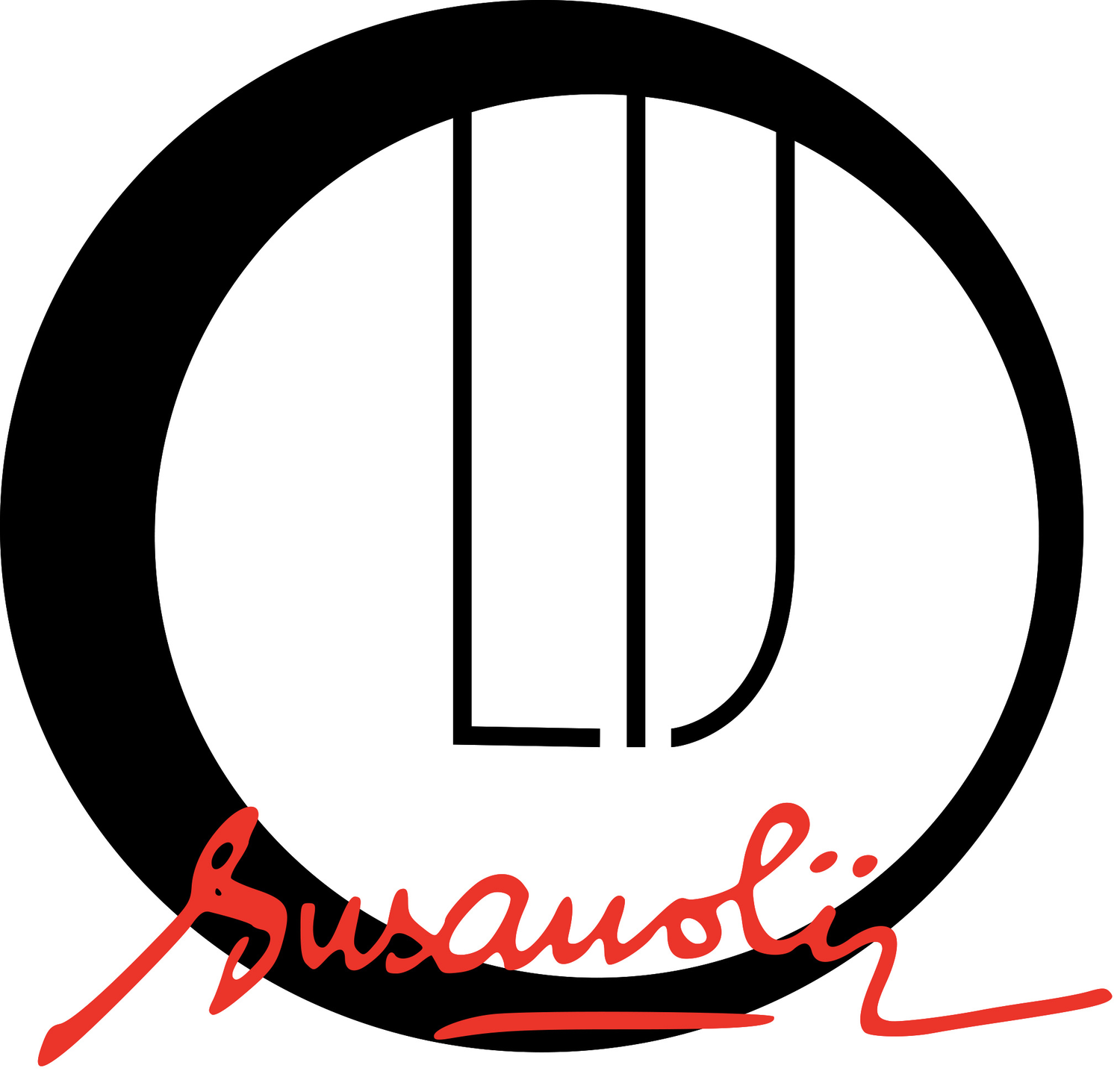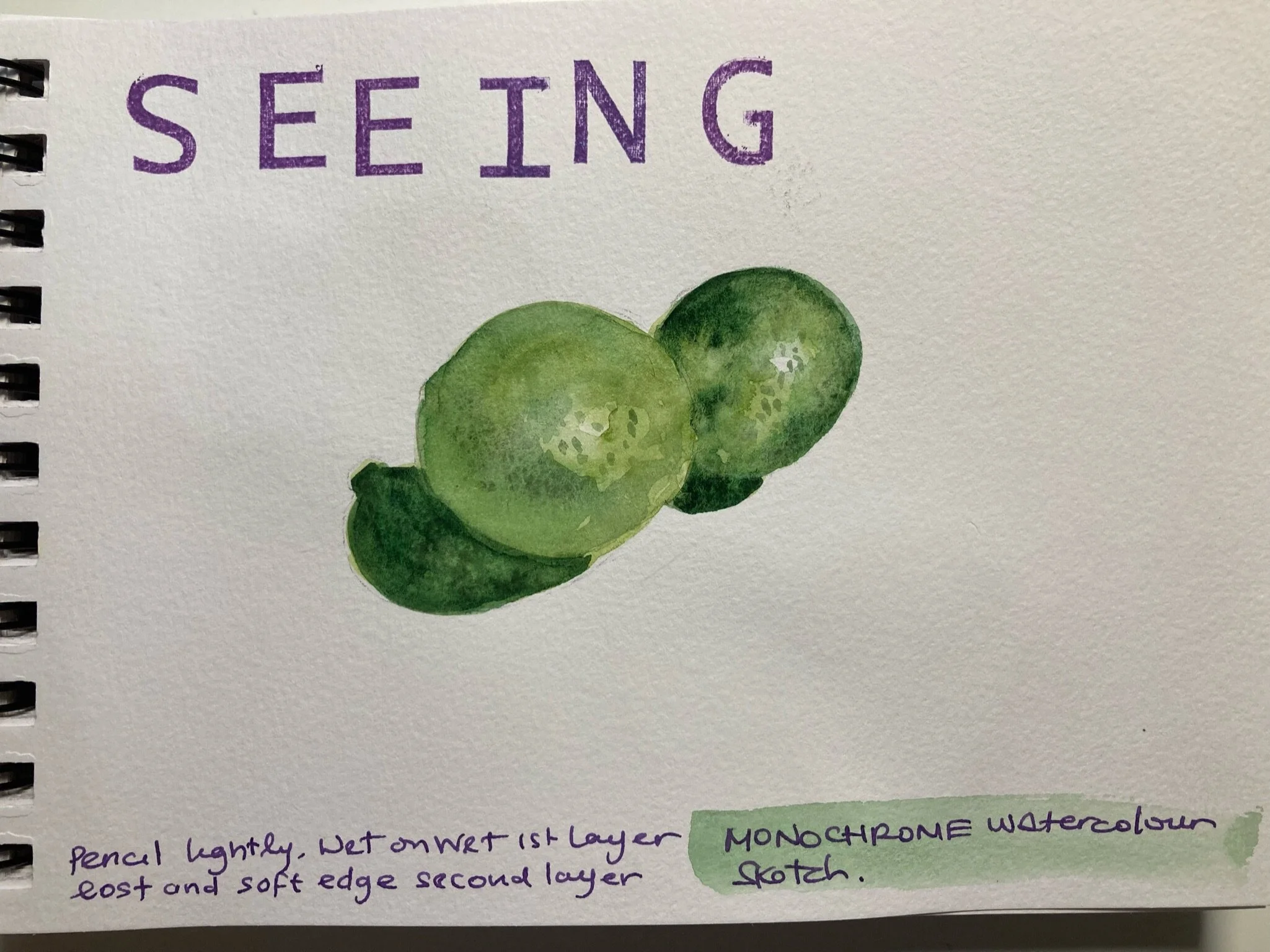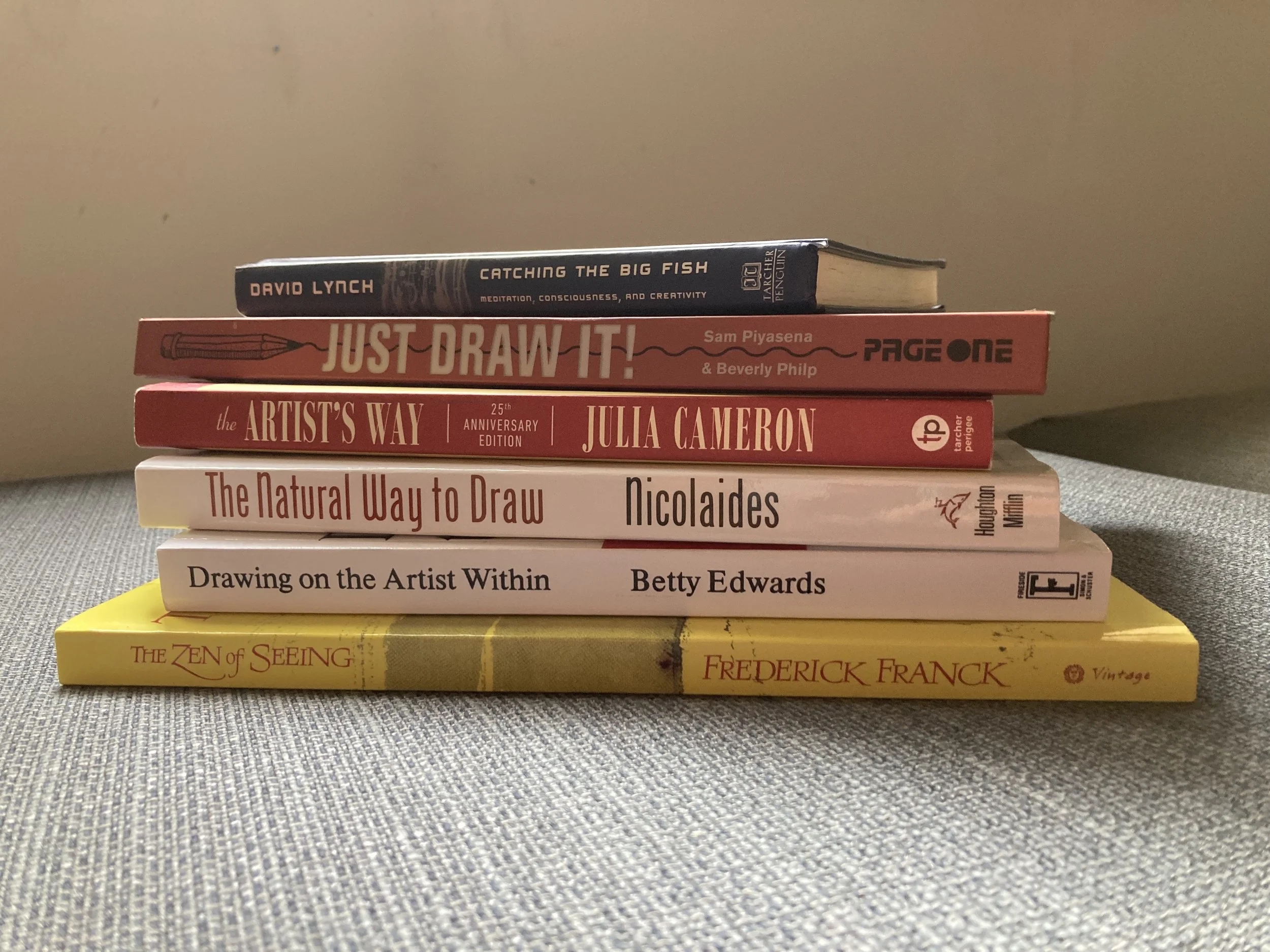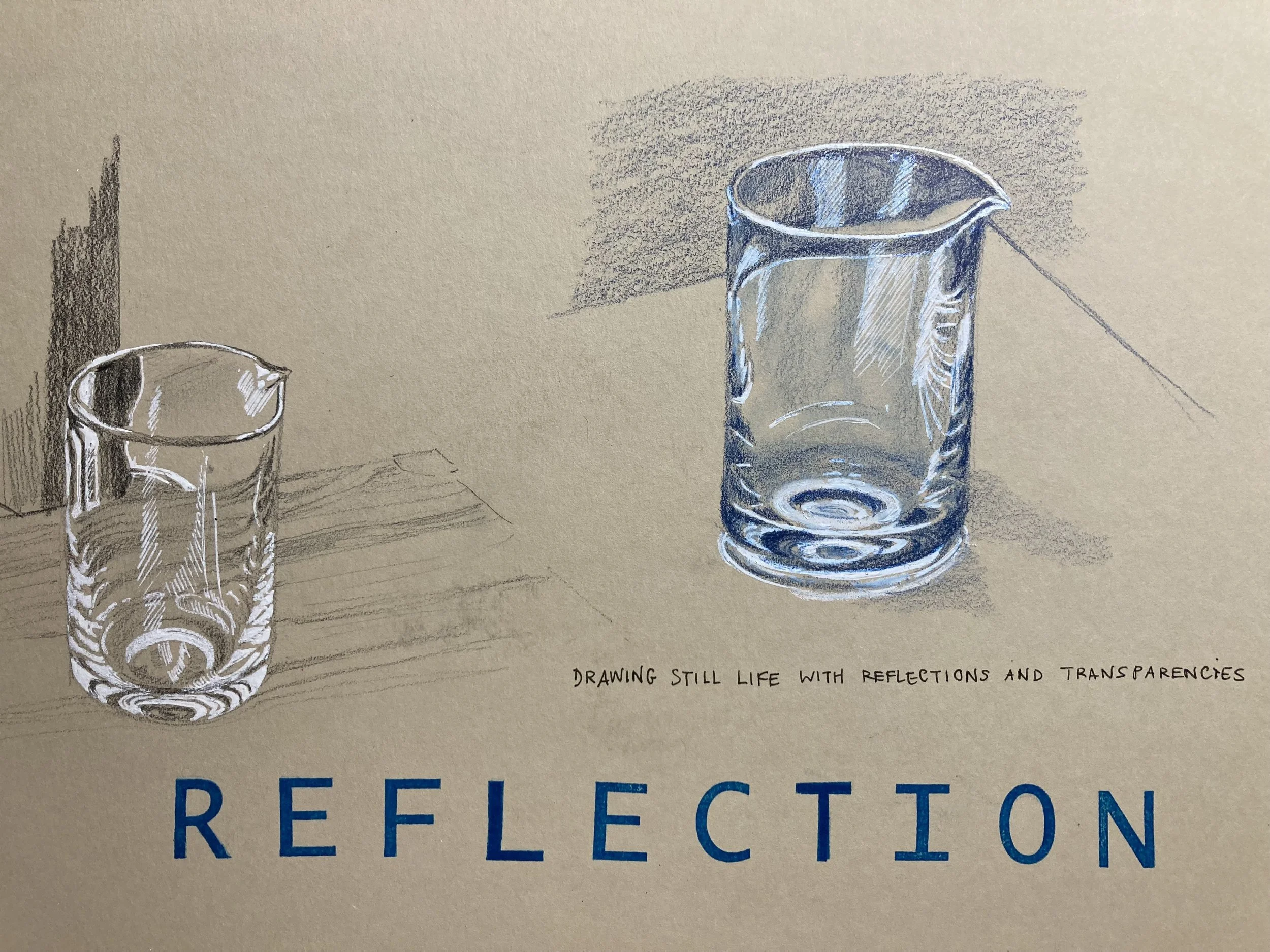Finding Words to improve my drawing practice.
A sentence I often say- Drawing is Seeing first
I realised more and more that when I am teaching, the words I use become the key words that students hold in their heads, and words are a big part of learning. Choose the wrong ones and I can easily confuse my students.
First of all, I tend to speak and draw fast, and sometimes it is too fast to be useful for a new ear who’s never heard those phrases before. I often have to keep reminding myself of this fact and slow down.
How receptive are my students in what I am saying? If you’re my student and you are reading this, I’d love to hear from you.
I often hear this from many different artists who teach, that art cannot be taught, and to a large extend this is true, Art can only be learned by experience and experience comes from practice. Learning drawing can only be done by drawing. But the one thing Teachers tend to leave out in their books are how important words are to learning to draw. There are drawing books written in the 1940’s and the way it was written is very illustrative, using words often only used in that era, thus those examples and phrases are out-dated now.
Some author such as the Zen of Drawing’s Frederick Franck writes poetically, and often this is so difficult to grasp when our brains are mainly interested in logic and pragmatic understanding. Sometimes we don’t know why some books just does nothing for us, and I can almost be certain that it’s because these books do not use words that resonates with you. I have many teachers in my school lifetime who failed to leave an impression, they’re not interesting or inspirational, and they don’t speak in ways that resonates and makes me become interested and curious about the subjects taught.
Some of my how-to book (includes David Lynch’s Catching the Big Fish, yes!)
So you might now be asking, how do I know how to find out what words resonate with me? The easy and short answer is when you cannot put a book down, when you are so enthralled by what’s on the page, fiction or otherwise, that author’s got words that resonates strongly with you, as if they took the words right out of your mouth.
For me, books about drawing and how to draw, can teach a lot if the tone of the words are personal, and accounts and examples are drawn directly from the author’s experience. The way stories are told are always more interesting when they’re told with an arch, and if there’s less generalisation. I think for the 21st century brain, we’re taught that stories are the most important way to get points made, and change are often pushed through because of a good story. This is the case with me. I have many how-to books that is too generalised and too vague, it doesn’t stick or leave any strong impression.
In my life, I am pulled by words when they resonate in the ways I aspire to. Writers like Anais Nin and Jeanette Winterson has made me feel alive when I am reading them. They might not be writing a how-to book but I am always pulled by their words into a place closer to myself, as if they know me, and they take those words right out of my mouth.
When words resonate strongly with me, I absorb it like a sponge, and I learn naturally. I don’t have to force myself, they just stick, I remember them.
I discovered a word wizard in Danielle LaPorte. While i couldn’t tell you where I found her from, but I could tell that for many years, she got me at her every words. Danielle LaPorte wrote a book about Core Desired Feelings. Where she argues that we do things for how they make us feel, so when you can find the core feelings (in words), you can then find the ways and actions to get to those feelings. Some of her posts found me feeling things. I followed her blog for many years, I found my ‘core desire feelings’ words and did my best to apply her teaching to my situations. I used to receive her email newsletter and felt that in that moment what she was saying was exactly what I needed to hear. Years later, this changes of course, as my circumstances change. While now I may no longer hang on every words in her monthly newsletter, I still take one of her quote seriously, and that’s what I wrote and paint on the first page of all my new sketchbooks. It is that’ All Art Involves Risk’.
Since Danielle Laporte, a poem by David Whyte called Sweet Darkness make me cry recently. Don’t ask me why this was a trigger poetry for me but it was. Sometimes we are in some state of being that is hard to articulate, and then some words, sentence, poetry would put those thoughts and feelings into words. That’s how powerful words can be.
You may not know this, but my mother tongue was Indonesian. I’ve not spoken it much since I left Indonesia which is more than 30 years ago now. I use Indonesian when I need to, but I don’t feel my mother tongue the same way I feel the english tongue now. I am not a philosophy students nor do I read a lot of books. But I rely heavily on the english language because its the language I speak, think, dream and express with the most.
And now I will leave you here with a quote from Anais Nin, an important one for me because I carry this quote around in my pocket.
“ I disregard the proportions, the measures, the tempo of the ordinary world. I refuse to live in the ordinary world as ordinary women. To enter ordinary relationships. I want ecstasy, i am a neurotic- in the sense that I live in my world. I will not adjust myself to the world. I am adjusted to myself.”
This quote might not resonate with you, but it is here as an example.
I hope you will now think back to those books and quotes that really sticks, and find the same kind of words in how-to books that you can learn from naturally.
Word!
Susan



